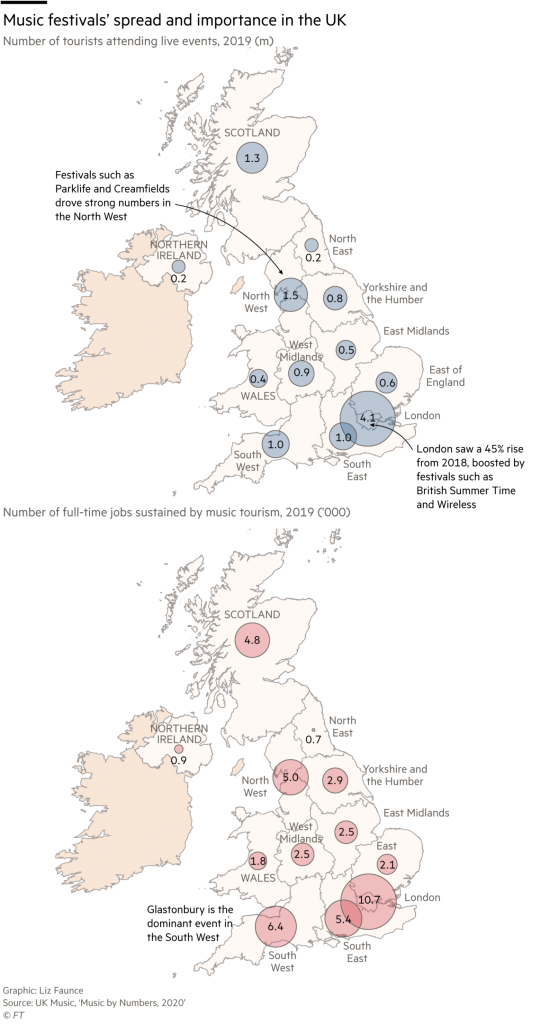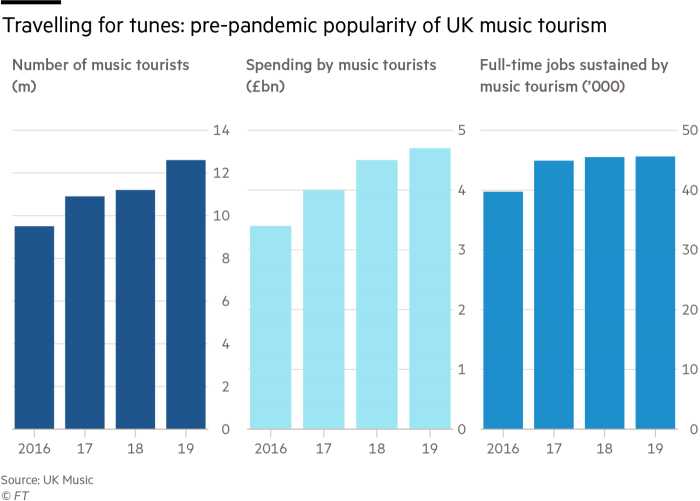The Fate Of Music Festivals In The UK Faces Serious Doubt
Image Credit: Kieran Webber
The Conservative Government must make a decision and soon or a thriving cultural sector will be decimated.
The UK, pre-covid, was renowned for its live music and bustling festival scene. In fact some of the worlds most prestigious and popular music festivals are held in this country, the most obvious being Glastonbury. However, it’s not just large gatherings in fields that make our summer music circuit so important and successful. In-between the massive festivals there are pub festivals, ale festivals, folk festivals in beer gardens, garden fetes, retro festivals, food festivals and many more. All of which attribute to the fantastic grassroots events that make this country a hub for entertainment. Not only are these hubs for live music but life in general, they build community spirit and allow people an escape. Every year in Britain, almost 1000 festivals take place and they are currently on the brink of decimation due to the uncertainty of just when ‘normal’ may return.
After the wipe out of last year the prospects for 2021 hang in the balance. Organisers and punters alike hope for a return to action later this year, specifically the summer. However, time is of the essence. According to evidence given to a parliamentary select committee this month, big festivals such as Glastonbury need to know this month of they can go ahead or they won’t have time to organise. Smaller events and festivals could possibly wait till March or April, but that would still be cutting it thin.

If 2021 faces the same cancellations as 2020 then it could ruin the events sector. Glastonbury founder Michael Eavis said recently that “it would be curtains” if they were to face a repeat year of cancellations.
Rumours of Glastonbury cancelling circled earlier in the year due to Mel B of the Spice Girls saying so during a radio interview. However, this was denied by organiser Emily Eavis who said “no news at this end”.
Recently festival organisers and those involved in the music industry called on the government to introduce a government backed insurance scheme for events. The insurance would cover the sector if they needed to cancel due to Coronavirus. They argued that without this there would be no way they could financially survive the cancellation nor begin to plan without that security. This argument, and an official date after which festivals would be allowed to operate, was recently brought forward to the cross-party culture select committee.
Such backstops exist in other countries. Last month, the German government announced a €2.5bn cancellation fund for events in the second half of 2021. The purpose is the ensure that festivals don’t get stung with upfront costs such as artist deposits and crew costs in the wake of a cancellation.

Speaking to the select committee Anna Wade, organiser of Boomtown said: “It is a very challenging road in front of us but not impossible.” Anna has a real fear that if Boomtown cannot go ahead this year, it may not ever return. This is something that is felt throughout the whole events industry, particularly festivals.
For a long time events have worked and gone through local government, who have given the permits, grants and support needed for festivals to thrive. Now state government must take the reins to support and aid this clearly important (for many reasons) and financially thriving industry. Time is running out and the government must act or we face one of the largest cultural destructions in modern history, but it needn’t be that way. New Zealand has managed to do it and now has live music returning to a normal capacity, most of the EU member states have put in generous fail-safes and now we all nervously watch how the UK government will act.
